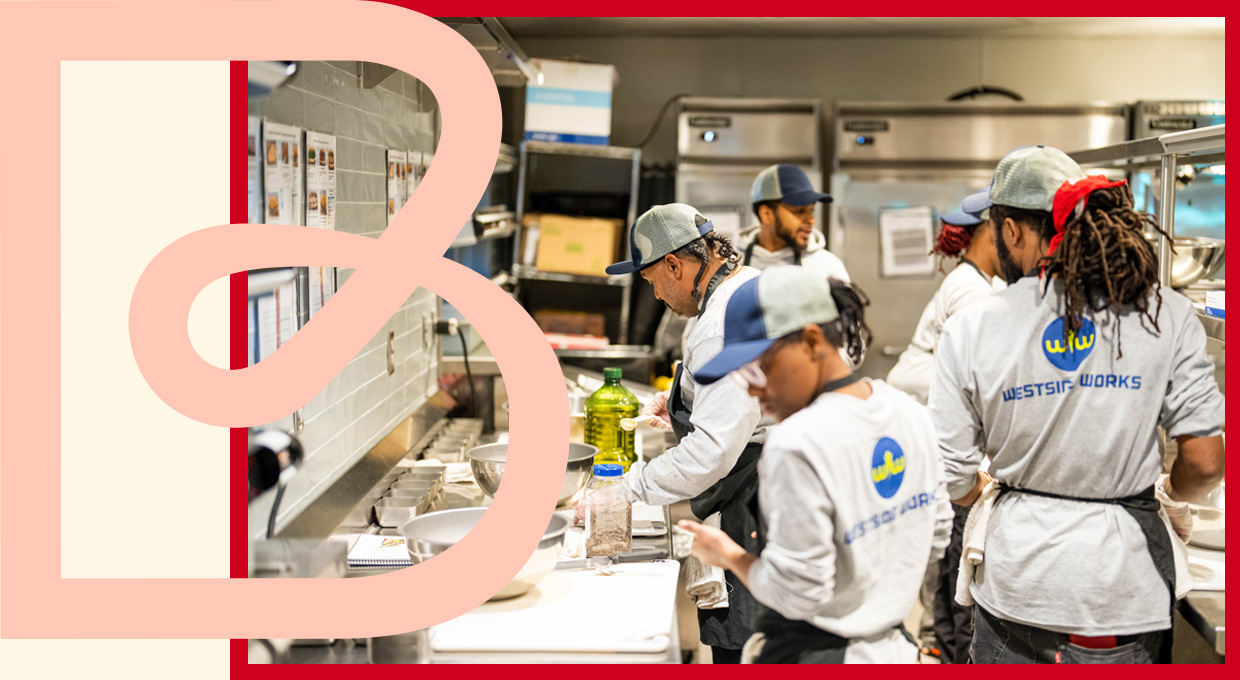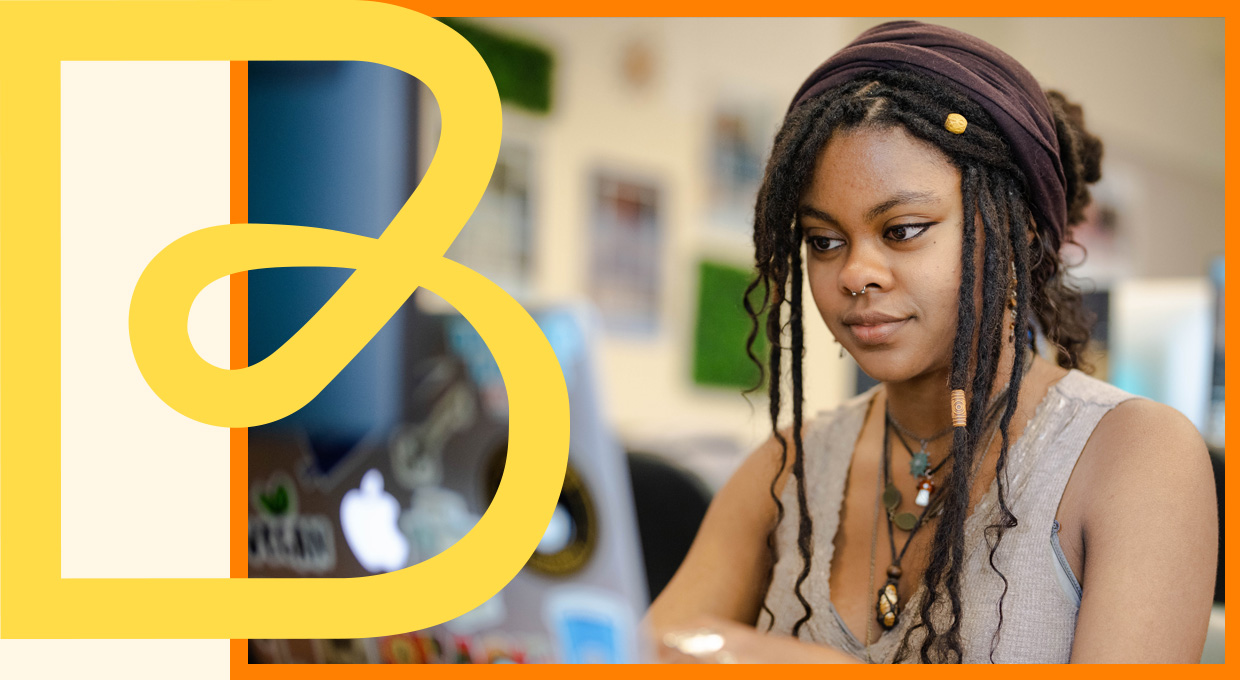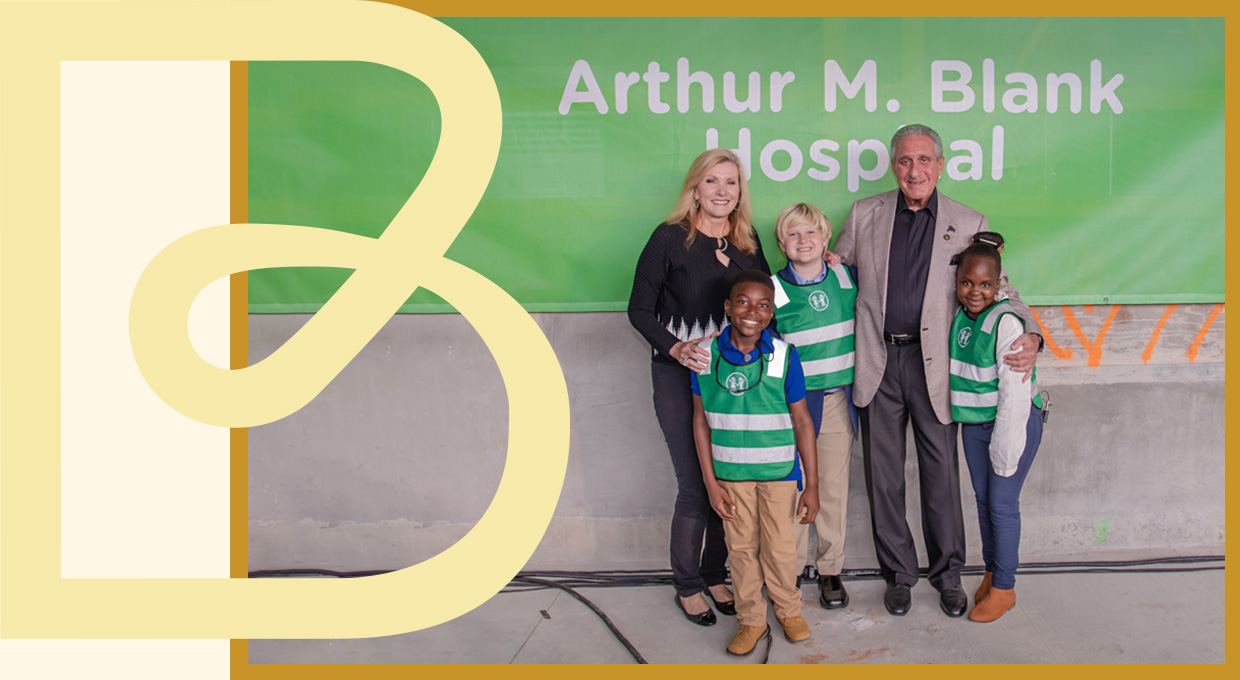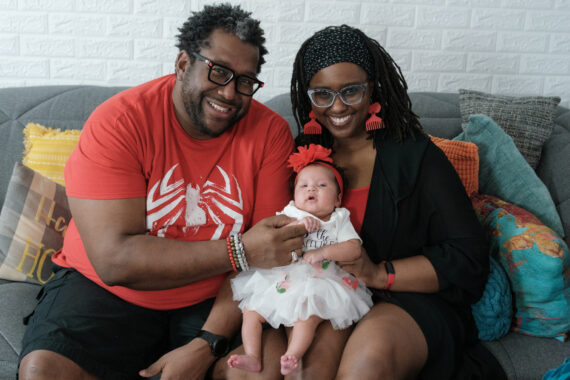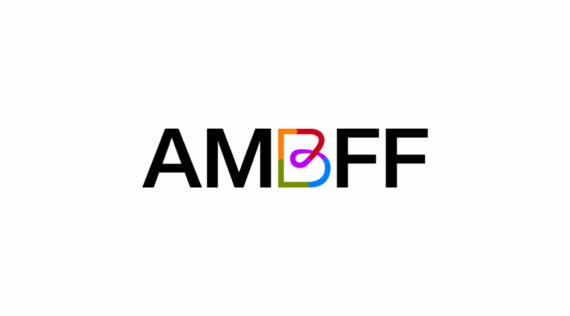Philanthropy and Football: Two Peas in a Pod?
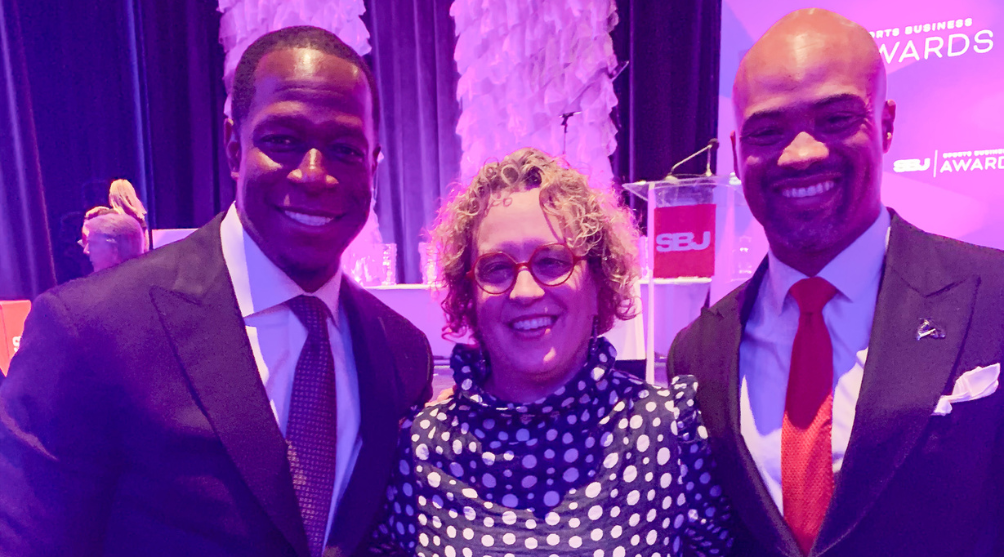
Written by Fay Twersky, President
I’m a lifelong football fan. Growing up in Philadelphia, I was a proud Eagles fan. When I moved to the Bay Area for college, I was swept up in the halcyon years of the 49ers and the West Coast offense. Now I’m in Atlanta, working for Arthur M. Blank, owner of the Atlanta Falcons and chairman of the Arthur M. Blank Family Foundation, and I’m a fully converted and full-time Atlanta Falcons fan! We’re heading for a great season with great leadership and a great team.
A unique aspect of my job as president of the Arthur M. Blank Family Foundation is that I share a leadership table with my sports colleagues, a table where we discuss how we can support one another’s efforts. I often use sports analogies now, not only because I can, but because they work. When speaking with colleagues, I talk about how we want to “move the ball down the field” in affordable housing or that we may need to “call an audible” when we’re organizing a grantee gathering. Analogies are useful because they can broaden our thinking—how we see a challenge and how we might innovate on solutions. As I consider these analogies, it occurs to me that football and philanthropy have a great deal in common. And so, this year, I’m devoting my annual letter to what I believe those commonalities are and where we might draw inspiration from each other.
We both start with a dream.
Arthur Blank, our chairman, often talks about the role that sports plays in our society. Sports brings diverse people together, sometimes to play and sometimes to watch. It improves our physical and mental health. And it shows us what we have in common, because even though we may differ on some things, we can still play together. Recently, I heard Arthur add a new twist when he talked about the value of sports in giving people a chance to dream—about playing, about competing and about winning. I loved that description for the purpose of sport, and it is, of course, central to what we do in philanthropy. We dream of a better world, based on love and fairness and equitable opportunity, and we dream about how to build it.
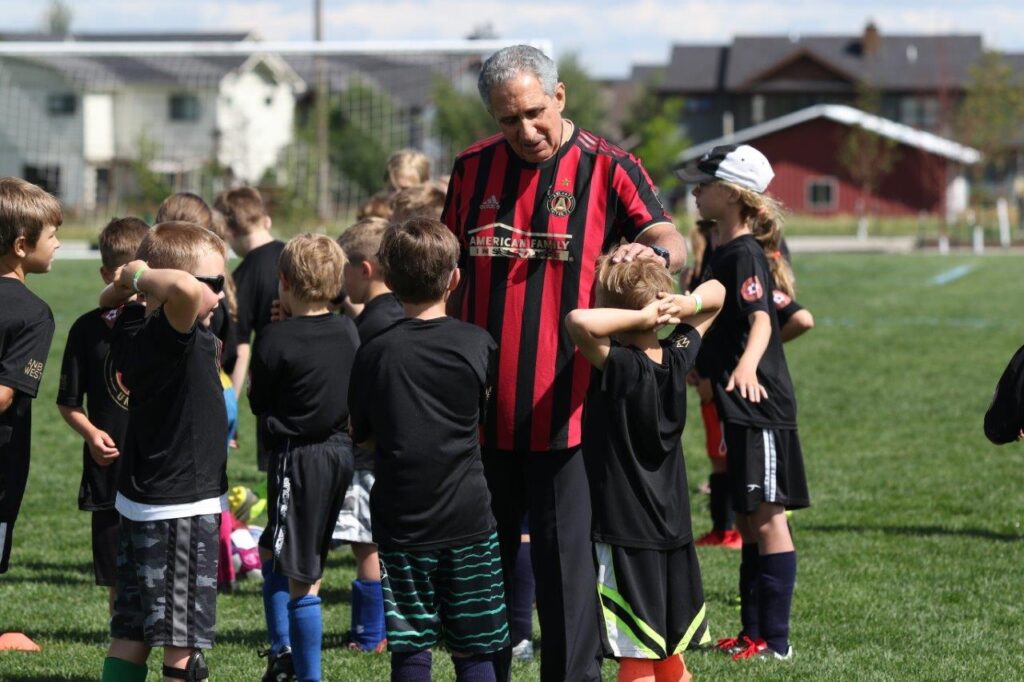
We both need a plan.
No football team goes into a game without a plan. Coaches prepare a game plan for every opponent. They study the opposing team and seek to understand their strengths and weaknesses. They’ll typically script the first 10 plays and from there adjust tactics as the game unfolds on the field. In philanthropy, when we tackle tough challenges, we also need a game plan and a strategy. We need to adjust as the world and conditions change, and as new challenges and new opportunities present themselves.
We both have a philosophy.
Coaches make choices based on their analysis, the talent on their team and their intuition. Some head coaches do all the play calling. Others have their coordinators call the plays. Some teams give latitude to the quarterback on the field to make choices about which play to run. Some coaches like incremental approaches like the West Coast offense—a scheme designed to give a team long possessions with short runs to gain a succession of first downs and occasionally open up the team for longer, bigger plays. Others opt for a more explosive big-play offense. And still others focus more on defense.
In philanthropy, there are many ways to pursue impact. Some philanthropies rely on big bets, while others seed innovation. Some rely on trust-based models and others are more evidence-based. One funder may focus more on direct service, while another invests in informing better policy solutions. None of these are “right.” They all have their place. Often, funders will draw on blended approaches, like we do at the Blank Family Foundation. Just like coaches make choices, so do philanthropies, based on our analysis of the opportunity we want to help create, the resources available, the evidence we have and our intuitions about what will make the most meaningful impact.
We both manage time.
In a 60-minute game and a 17-game regular season, the art of coaching requires a balance between patience and urgency. Short-term clock management and long-term team health both matter. It’s similar for philanthropy. For a problem like climate change, one of our main areas of focus, we must also manage the clock. We must act with urgency to quickly halt harmful emissions, while also looking 10 years into the future to formulate a plan for a more sustainable planet. In the short term, this means deploying market-ready clean energy like wind and solar, while also taking advantage of once-in-a-generation federal funding opportunities to ensure that low- and moderate-income households can benefit from clean energy and lower their monthly bills. In the long-term, philanthropy needs to invest in more innovation to develop the next generation of clean technologies and build many miles of transmission to bring that lower-cost energy to all consumers.
We both need a talented and experienced team.
In football, talent matters. Great football players have strength, speed, agility and good decision-making skills. But talent isn’t everything. Raheem Morris, the new head coach of the Atlanta Falcons, told me about an early experience as a head coach (with a different team), when he put together an enormously talented roster of rookies, but they didn’t deliver as expected. He later realized what was missing—veteran leadership. That team needed the kind of wisdom that only comes from time and experience. “It’s essential to have that mix of veterans and youthful talent on a successful team,” he said.
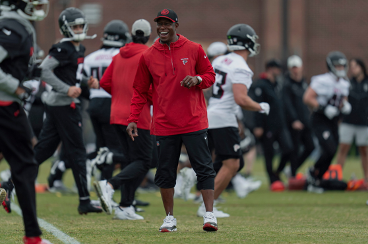
Ten years ago, I interviewed Patty Stonesifer, the first CEO of the Bill and Melinda Gates Foundation, and she offered a similar reflection on the organizational culture during her time at the Gates Foundation. She said it is important that philanthropic leaders are surrounded by wise people, not just smart people. She offered, “In this work, where you are setting out to solve large complex social problems, it is important to be surrounded by wise people—those who have both intellectual knowledge and actual experience.”
I, too, believe the best teams have the right blend of wise leadership and young talent—along with values alignment. We have built a diverse team in Atlanta and Montana, of values-aligned individuals with a range of background and experiences, each bringing unique value to a greater whole.
When it comes to talent, we should be open to surprises. One of the brightest young stars in the NFL today is Brock Purdy, “Mr. Irrelevant” in the 2022 draft. (For non-football fans, that’s the nickname given to the last pick in the annual NFL draft.) In just his second season as the starting quarterback, Purdy led the San Francisco 49ers to Super Bowl LVIII. Around the same time, the Blank Family Foundation worked with the youth development organization Year Up to place Jice Murphy as an intern at the foundation for a six-month rotation. After his internship, we hired Jice, who is now a rising star in our organization and a key contributor to our work.
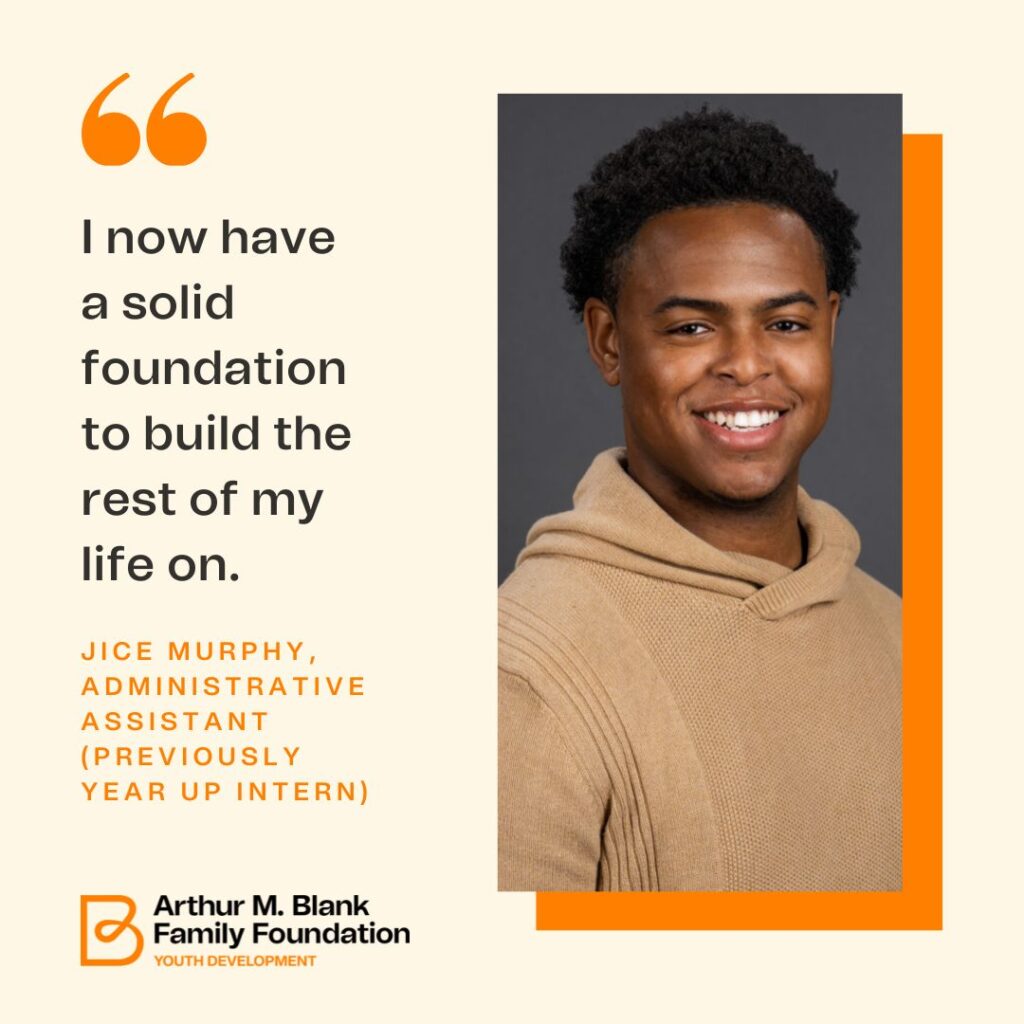
We are both part of a larger dynamic system.
In football, the players are only a small part of the whole picture. The owners, coaches, trainers, venue operators, fans and countless others comprise the ecosystem that makes football possible. Without these many stakeholders, the players would never make it onto the field.
Philanthropy also has an ecosystem that’s essential to success. First and foremost are the communities we serve, which bring their unique interests, preferences, insights and ideas, all of which are important for us to understand and dignify. There are our nonprofit partners, with whom we align and engage with respect. There is a board of directors that offers vision, guidance, feedback and support while holding the team accountable for achieving our goals. My wife has been known to say, “You can have a good organization without a great board, but you can’t have a great organization without a great board.”
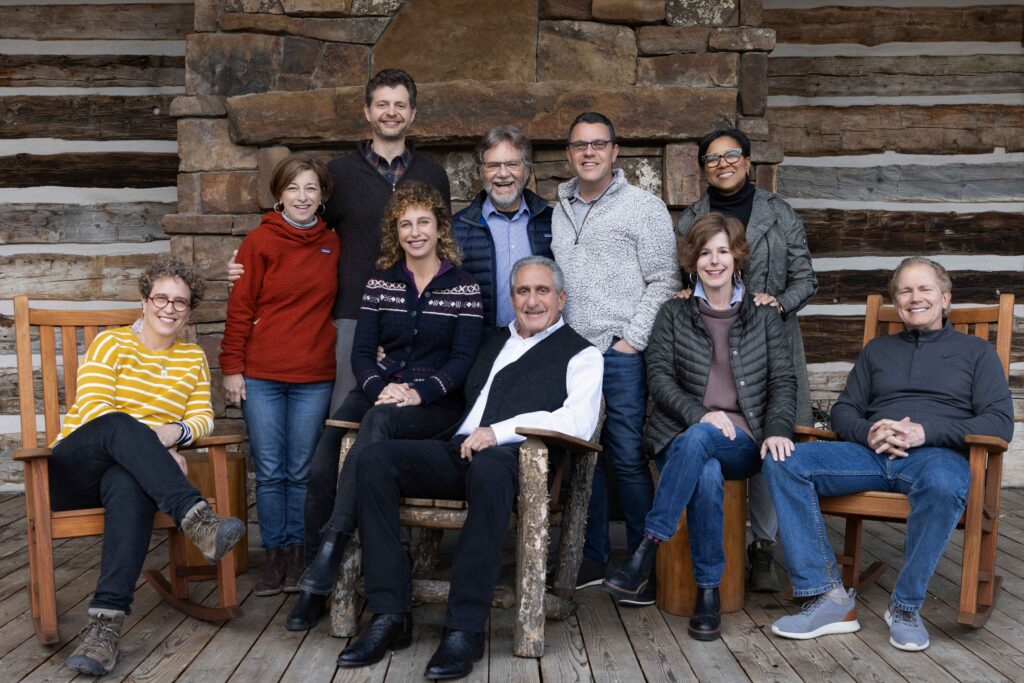
We both need diverse and divergent views.
Atlanta Falcons General Manager Terry Fontenot told me about the importance of diverse experience and divergent views in the football coaching staff. “It’s important that we have people on the coaching team who ask ‘Why?’ If everyone thinks the same way, we are likely to be missing something. We can become a little lazy and predictable. We must think through the strengths and weaknesses of our schemes and having folks in the room to ask, ‘Why are you doing it this way?’ or ‘Have you thought about it another way?’ is super helpful.”

It’s no different in philanthropy. Whether we’re working to mitigate climate change, poverty or a risk to democracy, we must break out of rigid ideological frameworks and ask ourselves whether there are other ways to think about the problem and to solve it. We must ask, “Why?” Why should we approach the problem this way? Why do we have confidence in this organization or this leader? Is there another path to consider? If these challenges were easy to solve, they would have been solved, so new ideas and frameworks for excellent execution are almost always needed.
There are a couple of areas where I think we can learn something from football—areas that are especially important to the Arthur M. Blank Family Foundation: Democracy and Mental Health and Well-Being.
Love of the Game and Love of Country
Americans love football. According to Gallup, it’s our favorite sport by a wide margin. It’s the top sport across gender and age groups. Fans are incredibly passionate about their individual teams. Why else would someone paint their face in bright colors, wear a cheese hat or sit for hours in subfreezing Buffalo temperatures without a shirt on? This passion co-exists with a true respect for the institution of football and the integrity of the game. Losses sting, but a game well played—with heart, guts and fair competition—is still a great game.
At the beginning of every football game, we sing the national anthem. We stand, take off our caps, place our hand over our heart and say a kind of prayer to our country. It’s part of the civic liturgy of football. Both teams, who each want to win, all coaches and all fans engage in a collective act of patriotism that says, “We’re in this together.” Each team has a locker room of 69 players with different backgrounds, religions and political views, yet they come together and work toward a single goal. Love and lifelong brotherhood are created because they do something difficult together.
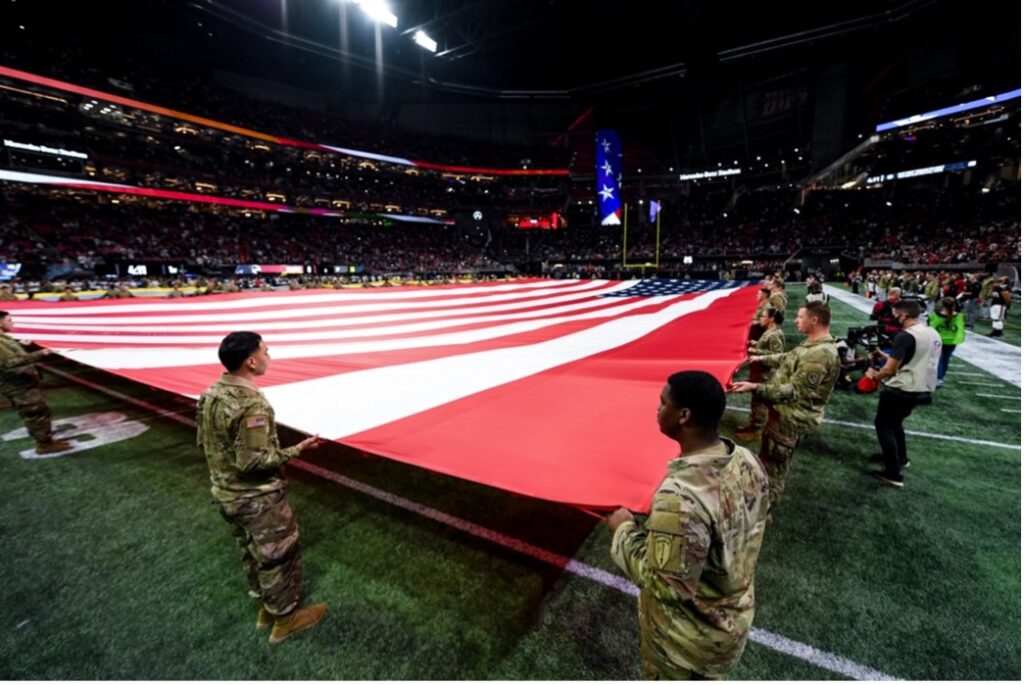
At the Blank Family Foundation, this is what we’d like to see in our U.S. democracy. We know that citizens have different political teams and allegiances. But we want all citizens, including and especially our leaders, to love and be loyal to our country, our constitution and constituents above hyper-partisan politics. Our democracy is beautiful, rare and fragile, and we need to respect the integrity of the republic and behave as if we are in it together.
A Unique Platform for Good: Stepping Up in Mental Health
Because so many young people look up to professional athletes as role models, teams have a big opportunity for positive influence. Some teams and players have recently addressed the issue of mental health, a topic that’s often swept under the rug in macho sports environments. Several players and owners have come out publicly about how important mental health is to them and their families. In fact, the NFL is trying to eliminate the stigma associated with mental health by requiring all teams to hire mental health staff and support players and coaches to get the help they may need. Football has recognized that mental health is as important as physical health. That says a lot in an environment where physical health is paramount.
Philanthropy can learn from what football is doing to address the stigma associated with mental health. At the Blank Family Foundation, we’re funding work across the country to decrease stigma, increase access to mental health services and support emotional thriving, especially among young people. We take inspiration from the world of football in this regard.

But Doesn’t Football Tolerate Lots of Bad Stuff?
I have many friends who are “done” with football—with the injuries, instances of violence and the periodic hateful speech. But as Bryan Stevenson, executive director of the Equal Justice Initiative says, “Each of us is more than the worst thing we have ever done.”
To that end, there are things that football can learn from philanthropy. The word philanthropy means the love of humanity. At its best, philanthropy lifts all people, honors the dignity of all people and supports innovations to bring about a more just world. Football would do well to leave behind some of its intolerance and replace it with more love – of all humanity. Loving humanity doesn’t mean we love parts of humanity. It means we bring love to every table, every interaction and every community.
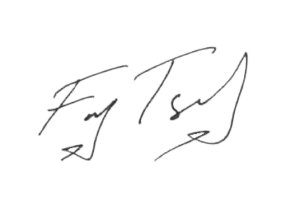
Fay Twersky
President, Arthur M. Blank Family Foundation
Stay Connected
Stay up to date with stories of impact, grants in your neighborhood and other interesting foundation news.
By submitting this form, you are consenting to receive marketing emails from: Arthur M. Blank Family Foundation. You can revoke your consent to receive emails at any time by using the SafeUnsubscribe® link, found at the bottom of every email. Emails are serviced by Constant Contact



